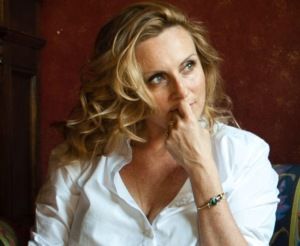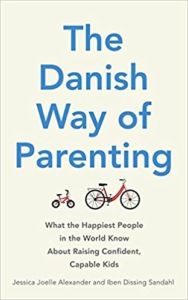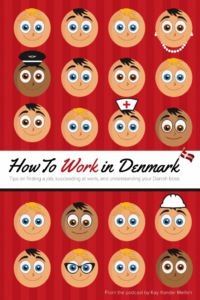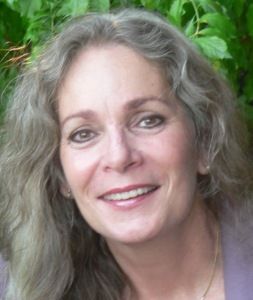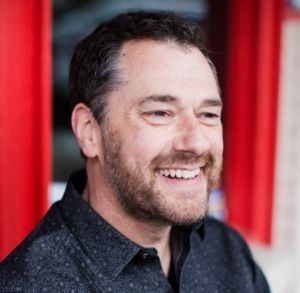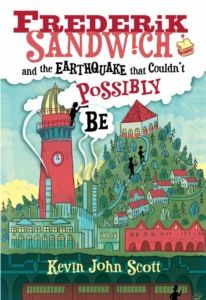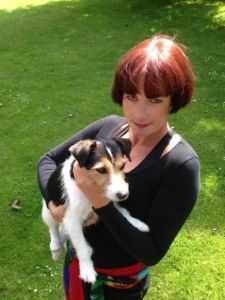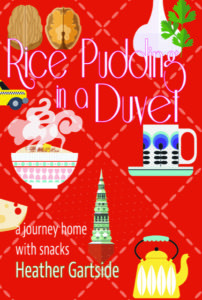Nordic noir and cuisine, Danish design and pastries, Scandinavian women and Vikings – inspiration comes in many shapes and forms in this fair country, and for some it isn’t enough to stay quiet.
Denmark might initially confuse, irritate, delight or intrigue newcomers, but as many make sense of it, they feel that age-old adage metamorphosing in their very being: everyone has a book in them!
True, nine times out of ten these days, the result in Denmark is a book on hygge or lykke.
But CPH POST has steered clear of the happiness brigade to document the experiences of five authors whose books wouldn’t be in circulation had they not stumbled across a Danish catalyst.
READ MORE: Travel broadens the mind, but does it also fuel the pen?
Experience is everything
For some, it was their own experience. Kay Xander Mellish felt compelled to provide the help she’d only wished she had when she first started negotiating the Danish job market. American mom Jessica Alexander, meanwhile, couldn’t wait to share what she’d discovered about Danish parenting.
Others drew inspiration from the experience of others. For Apple Gidley, it was the ordeal and retribution of slaves on the former Danish island of St Croix, and Kevin John Scott, the birth of his child in Copenhagen and an earthquake.
And sometimes, as in the case of Heather Gartside, it can be a mixed bag: her own and others’ experiences, and the good and the bad.
After all, Denmark might have awoken that dormant book inside you, but nobody said extracting it would be easy.
PARENTING LIKE A PRO:
Name: Jessica Joelle Alexander
Nationality: American
Book title: The Danish Way of Parenting
Number of published books: 1 (second on the way)
Publisher, issue date: Penguin Random House, August 2016
Available via: Amazon, most book stores
Could you introduce yourself and your book?
I am an author, columnist, Danish parenting expert, speaker and cultural researcher who wrote ‘The Danish Way of Parenting; What the Happiest People in the World Know About Raising Confident, Capable Kids’. I have written for TIME, the Atlantic, Salon, Huffington Post and many more. I am deeply inspired by Danish culture and how we can apply some of their ‘ways’ across the globe for more well-being.
What inspired you to write a book about Danish parenting?
I have lived in several different countries, but I have been married to a Dane for 17 years. After I had children I realised how special the Danish parenting model was and how much it had improved my life as a person and a parent. I was convinced it was the reason the Danes are constantly voted the happiest people in the world. Happy kids grow up to be happy parents and the cycle repeats itself.
Were there any elements related to Danish parenting you struggled to comprehend?
It took me a long time to comprehend how ‘hygge’ really works in a family. I experienced it with my Danish family for 13 years before I finally understood there were unspoken rules that Danes know because they grow up with it. Once I understood the ‘hygge oath’, everything changed for the better. Even taking 20 minutes a day to hygge with the family can be life-changing. I always say: “Hygge isn’t mindfulness, it’s we-fulness.”
What was the single biggest insight about Denmark that you discovered?
I would say using empathy and a ‘no ultimatums’ approach rather than an authoritarian style of parenting. The motto is “Teach respect, be respectful and you will be respected”. This has altered my parenting and relationships dramatically.
What advice would you give to somebody writing a book set in or about Denmark?
I would say an authentic voice is always a good place to start.
How does your book stand out from other books written about Denmark by foreigners?
I think the insider/outsider perspective is very relatable to parents and non-parents alike. Many people say: “This isn’t just a parenting book.” It’s a book that can improve happiness for anyone, if they are willing to try it.
How different do you think Denmark is to other countries?
I felt like I discovered a treasure chest in my backyard being married into the Danish culture and I love sharing all the gems I discover through writing and presentations. Most of what I write about is completely normal to Danes. They don’t even understand why the rest of the world finds it so interesting. That is usually when I know creativity has struck and I need to write about it!
Do you think Denmark has changed much over the last decade?
I think, like all places, it has changed. However I think the fundamental values have stayed the same. Denmark is not a commercialised country and it genuinely cares about the good of its people. This is why the way they view children is really just common sense, and in our ever changing world of choice and commercialisation, common sense is worth its weight in gold!
CAREER-CONSCIOUS CHOICES:
Name: Kay Xander Mellish
Nationality: American-Danish
Book title: How to Work in Denmark
Number of published books: 3
Publisher, issue date: KXM Group, 9 February 2018
Available via: Amazon, Saxo.com, iTunes, Google Play, selected bookstores
Could you introduce yourself and your book?
I’m a public speaker, journalist and podcaster based in Copenhagen, and I’ve blogged at howtoliveindenmark.com for several years. ‘How to Work in Denmark: Tips on finding a job, succeeding at work, and understanding your Danish boss’ is based on my own experiences in the Danish job market, as well as the emails I receive every day from foreigners in Denmark and foreigners on their way to Denmark.
Why do you write about Denmark?
When I first came to Denmark, I made a lot of avoidable mistakes in the workplace and made a fool of myself on a regular basis. I figured I could help other newcomers avoid making the same mistakes I did.
Have there been any elements related to Denmark that you have struggled to comprehend?
I think Danish humour is tricky for anyone who didn’t grow up in a country with very dry, cutting humour. There’s a chapter about it in the book, but I’m still not sure I understand it fully.
What advice would you give to somebody writing a book set in or about Denmark?
Think about how you can best serve the person reading it. Is it for information, entertainment, or maybe reference? It’s all about the reader.
Do you think you would have ended up writing books had you not moved to Denmark?
Yes. I was a journalist in the US and used to run literary readings in New York City.
How different do you think Denmark is to other countries?
I think that the Danes have survived as a small country in a rapidly-changing world by creating a cohesive and mutually supportive culture, and I commend them for it.
Do you think Denmark has changed much over the last decade?
Over the past decade, Denmark has become much more international, and some of its traditional Jantelov pettiness has faded, but so has some of its cohesiveness. As annoying as paying taxes can be, I would rather pay 52 percent income taxes and have a reliable health service than 51 percent and face the consequences of staff shortages and other cutbacks.
What is your biggest objective writing about Denmark?
My greatest objective is to help foreigners feel more comfortable in the Danish workplace and in Danish society as a whole. Denmark needs foreigners, but it doesn’t always know how to make them feel entirely welcome. Now that I’m officially a Dane – I became a citizen last year! – I’m doing my best to help foreigners help Denmark.
CURVEBALL AMID THE TWISTERS:
Name: Apple Gidley
Nationality: Anglo-Australian
Book title: Fireburn
Number of published books: 2
Publisher and issue date: OC Publishing (Canada), 2017
Available via: Amazon.com, saxo.dk
Could you introduce yourself and your book?
Growing up in four countries and then living in another eight as an adult instilled me with an interest in different customs and cultures. Work has been a somewhat random affair, though it has mostly revolved around writing of some sort, but choosing to live on St Croix was serendipitous. If it were not for the annual threat of hurricanes, it truly would be paradise. With its history all around me, such as the beautiful old buildings built with ballast bricks and coral stone cut by slaves, or the willingness of its inhabitants to answer my endless questions, writing ‘Fireburn’ was an engrossing pleasure.
Why did you choose to write about this period of history?
I attended a Transfer Day celebration at the Lawaetz House on St Croix in 2014 and, as I listened to dignitaries from both the Virgin Islands and Denmark, I wondered what it had been like to live in the Danish West Indies in the 1800s. I originally planned to write a novel about the lead-up to the transfer but research led me to ‘Fireburn’, a pivotal event in 1878 that led to a change in the Labour Laws. And so ‘Fireburn’ the novel was born, with the sequel, ‘Transfer of the Crown’, due to be published in March 2019, taking the same characters through to the Transfer in 1917.
What’s the reaction been so far, and have you generated interest in Denmark?
I have been thrilled with the global response to Fireburn, and it seems to have sparked an interest in Denmark, particularly within the Danish West Indian Society and on St Croix with Danish visitors.
Before you wrote it, did you know much about Denmark?
I knew little about Danish involvement in the Caribbean, and so a whole new area of history, which I have found fascinating, has drawn me in.
Have there been any elements related to Denmark that you have struggled to comprehend?
Not really. It is important to remember that actions and events, which might seem abhorrent now, were of a time and place. That does not mean excusing the past – rather it means learning from it so that the present can be understood and the future embraced.
What’s been the single biggest insight about Denmark you have discovered?
I have been surprised at the level of interest, and involvement, from Denmark in their former colonies, both on a personal level and with ongoing support. For example, BYFO, the Association of Historical Houses in Denmark, is actively engaged with the conservation and renovation of wonderful old ruins in Christiansted, which were originally the Danish army barracks. Though because of this interest from Danish visitors to the islands, I was surprised when I visited Copenhagen for research how little there was on display at the museums about the colonial past.
What advice would you give to an aspiring writer?
Read, read, and read some more. Then stop talking about writing and just do it. It can be lonely, it without doubt brings rejection, but it is the single most satisfying thing when those stray words come together and you have a piece with which you are moderately, though never entirely, happy.
BORN IN A BOY’S BASKET:
Name: Kevin John Scott
Nationality: British
Book title: Frederik Sandwich and the Earthquake that Couldn’t Possibly Be
Number of published books: 1
Publisher, issue date: Sourcebooks Jabberwocky, 6 February 2018
Available via: Amazon
Could you introduce yourself and your book?
I’m a US-based writer of business and fiction who lived in Frederiksberg for three years while working for Microsoft in Vedbæk. I spoke very little Danish and on the day my son was born I began writing a story about a boy raised by inept foreign parents unable to correctly pronounce his name. The book – the first in a series, with the second one due out next February – follows 11-year-old Frederik, and his eccentric neighbour Pernille, 13, as they investigate the cause of a mysterious earthquake (inspired by one in Copenhagen in 2008). They discover an underground railway and then a labyrinth of pipes and tunnels leading to Cisternerne and Copenhagen Zoo.
Why have you written about Denmark?
Arriving as an expat, I was bombarded by such rich settings, quirky characters and bizarre behaviour. I fell in love with the country, but it was challenging too. We seemed to be forever breaking rules, and we couldn’t pronounce a word of the language!
Were there any elements related to Denmark that you struggled to comprehend – beyond the language?
We were forever breaking unwritten rules that everyone knew except for us. We got told off in supermarkets, trains, the workplace, the vuggestue. I remember some expat friends being told off for not riding their bicycles correctly! At a deeper level, I found myself exploring and writing about the tension between Scandinavia’s tolerant, liberal culture and a new undercurrent of intolerance that was rising in response to greater migration. It struck me that if a nation as tolerant as Denmark was struggling with that, the impact on less kindly nations might be a real problem. Sadly, that has proved to be true – particularly in Britain, where I’m from, and America, where I live.
What advice would you give to somebody writing a book set in or about Denmark?
Just immerse yourself in the place and write down everything. The stories tell themselves. And make sure you have lots of paper. You’ll need it!
How do you think it is different from other countries?
Our colleagues and neighbours made us feel welcome. But on the other hand, I found Denmark to be a tight-knit, somewhat insular culture. I felt more consistently foreign in Denmark than I do in America, for example. We never fully belonged. However, I believe that is one of Denmark’s strengths, and I hope it continues. Danish culture is a rare and wonderful thing and deserves to be protected from our uncouth interventions.
Why have you targeted the books at 8 to 13-year-olds, as opposed to a younger age group?
This was my first book for kids, inspired in part by having my first child. I ended up in that 8-13 age group because I like the balance it gives me. The readers are ready for richer language and wordplay, which I love. But they are also young enough that my stories can be unlikely and odd, as befits the Danish setting.
HYGGE’S ANTI-HEROINE
Name: Heather Gartside
Nationality: British
Book title: Rice Pudding In A Duvet
Number of published books: 1
Publisher, issue date: Mill House Publishers, Nov 2017
Available via: saxo.com, Books & Company
Could you introduce yourself and your book?
I’m a British writer, designer and photographer. When I was in my 20s I looked over the garden fence and liked what I saw, and I’ve been travelling and taking notes ever since. To date I’ve lived and worked in nine different countries with my family. Being a writer suits me as it’s portable and my wanderlust is a great way of changing the plot. The title of the book comes from a recipe given to me by my Danish mother-in-law, and every chapter is named after a dish. ‘Rice Pudding In A Duvet, a journey home with snacks’ is based on Danish soil, but from her warmly-insulated kitchen, the main protagonist shares her favourite recipes along with her charming, observant, sexy, mystical and downright stupid adventures from here and around the world.
How does your book stand out from other books written about Denmark by foreigners?
It’s realistic about the reception you’ll get. I think that when I first moved here I was stunned by how roughly I was treated. Hygge just wasn’t on the menu. I felt hurt on a daily basis and became something of a Danbasher. It was only when my Danish husband and I went to live in the UK for a year and he started Britbashing the bread, crisps, rotten teeth, roads, trains and lack of bikes that I began to realise that I’d been a little snarling! Denmark is just a small part of the whole dysfunctional world family after all. Nevertheless, I hope I nimbly side-step the sickly hygge bandwagon with some painfully-honed observations, issued albeit with a ladle full of love.
Have there been any elements related to Denmark that you have struggled to comprehend?
The weather is bleak, dark and dismal in the winter, so why do the Danes insist on wearing matching clothes?
What advice would you give to somebody writing a book set in or about Denmark?
Include the prefix ‘Dan’ in your title! Next to Danbashing, my next favourite activity is Danspotting! Play it on car journeys with small children and see how many names you can see that have the word ‘Dan’ in them. The list is endless! Come to think of it, maybe calling my second book ‘Into The Middle Distance’ – which deals with grief, hope and transformation – was a mistake. Perhaps if I put Dan in the title, I’d sell loads of copies to the Danes?



